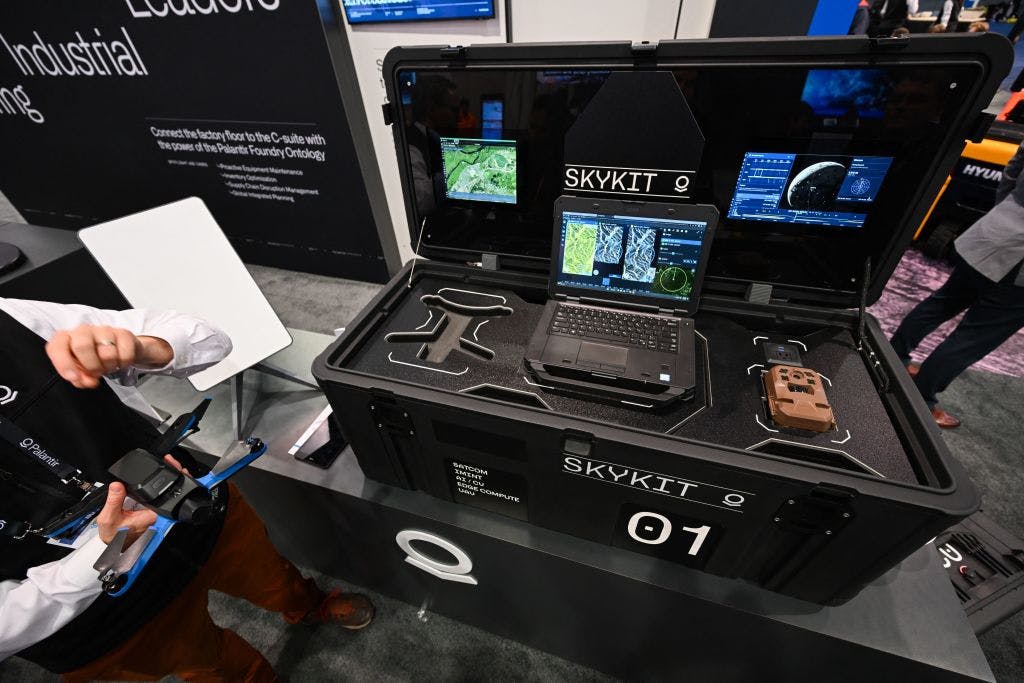Retail traders’ zest for Palantir put to the test as earnings await
High multiples usually mean high expectations, but Palantir’s profits are expected to nearly halve year on year.
It’s earnings day for Palantir, arguably the hottest retail stock of the moment.
That steadfast retail shareholder base came in handy after Palantir endured a pretty gnarly 19% drop between January 3 and January 13 amid a wobble in confidence around the highest flyers of the AI era.
Retail traders swooped in to buy the dip and for weeks they’ve been laughing, as the stock recovered its loss and then some. Shares recently hit record highs. Nice trade.
Still, the nagging question posed by Palantir’s insane valuation multiples — forward PE (173x), trailing PE (418x), price-to-forward sales (53x) — remains: is there a snowball’s chance in hell of Palantir’s sales, profits, and margins ever reaching a level that would come anywhere near justifying the company’s nearly $190 billion market valuation?
For what it’s worth, that level of market cap puts Palantir, which has been public for less than five years and in the black for just two, ahead of perennially profitable icons of corporate America like AT&T, Verizon, and Pfizer, to name a few.
Of course, there’s no way that today’s numbers — due around 5 p.m. ET — will answer that question conclusively. Even if Palantir blew the doors off the hinges and posted sales well above the consensus expectation of $771 million and a far fatter profit than the somewhat piddling $48 million that’s projected, the stock would still be laughably overvalued by any traditional metric.
As far as the details, analysts and traders are going to be especially interested in whether Palantir sees a Q4 fillip in sales to corporate clients rather than its larger business of selling defense and intelligence software to governments and militaries. Palantir has been talking up the demand for its AI software products from private-sector buyers recently.
But if the numbers fall far short, it stands to reason it could take some wind out of the stock’s sails.
Shareholders may rightly wonder whether the superheated rhetoric emanating from Palantir executives might actually be an attempt to sex up a fairly standard software business. A bad quarter could also prompt shareholders to take a second look at the fact that the CEO has picked up the pace of his share sales (albeit through a prearranged stock sale program) and has dumped over $2 billion worth of Palantir stock in the last six months, according to one analyst.
Or maybe not. In many ways, we’re in something of a LOL-nothing-matters market.
Case in point: traditional business metrics like sales and profits have proven a remarkably poor guide predictor for Tesla’s share price recently, so much so that flummoxed Wall Street analysts are going public with the fact that they’re at a loss to explain the stock’s rise in the face of obviously ugly earnings last week.
Tesla is an interesting comp for Palantir. Both companies are wealth vehicles of right-wing oligarchs with close ties to the Trump administration. Both have rabid contingents of retail shareholder and outspoken, charismatic CEOs. And both have crucial business issues that hinge on federal government policies, whether it’s in the form of the federal EV tax credits that incentivize sales of electric offerings like Teslas or the fact that Palantir’s single largest customer is the US government. (Oh and there’s also Musk’s other venture, SpaceX, which is a major government contractor.)
Oddly enough, these two companies also happen to be the top two stocks in the S&P 500 (closely followed by Taser maker Axon) since President Trump won the election in November, suggesting that at least some investors are betting on benefits for Tesla and Palantir under the new administration that traditional business metrics don’t quite capture.
Ain’t the free market grand.
